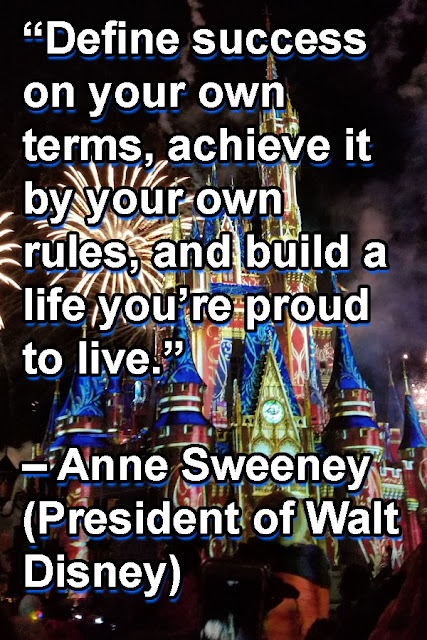
Whether you are still in school, just starting your career or are already at the top, great books on organizational leadership, packed with interesting stories and life-changing inspiration, can help you achieve better. There are many great books on organizational leadership out there; so, our recommendations are not absolute. They do, however, start you off with a handy list.
1) Extreme Ownership: How U.S. Navy SEALs Lead and Win | By Leif Babin
Our first recommendation is EXTREME OWNERSHIP by Leif Babin.In the book, U.S Navy Seal officers, Leif Babin and Jocko Willink share first-hand lessons from the most violent and dangerous battlefields in Iraq. With gripping, firsthand accounts of heroism, loss, and victories, they learned that leadership, at every level, is the deciding factor in whether a team succeeds or fails. They also learned that to be a great leader, one must take total and extreme ownership of their own actions, decisions and failures.
After leaving the SEAL Teams, Babin and Willink launched a company, Echelon Front, that teaches the same leadership principles they gained from the war. Since then, they have trained countless leaders over various industries across the U.S and internationally on how to develop and lead high-performing teams.

2) Dear Madam President: An Open Letter to the Women Who Will Run the World | By Jennifer Palmieri
Former White House Communications Director, Jennifer Palmieri, has much advice to share with budding young female leaders. From being a woman in a male-dominated industry to making advancements against all odds, Palmieri leverages her White House experience to teach other women how to succeed and thrive. While she realizes that there is still much to do for women to push forward in the work force, Palmieri leaves us with satisfying facts and hope. Whether you are male or female, you will gain wise and applicable knowledge from reading this book. Find book at DEAR MADAM PRESIDENT.
3) When: The Scientific Secrets of Perfect Timing | by Dan Pink
According to Dan Pink, the author of WHEN: THE SCIENTIFIC SECRETS OF PERFECT TIMING, there is a certain time of the day when a person is the most productive, a certain time of the year to begin a new job, and a best time of the day to have a meeting. Using a rich and diverse trove of research from psychology, biology, and economics, Pink shows us how to succeed in career and life by master the art and science of having perfect timing.Some of his tips include: how to use the hidden patterns of the day to build an ideal schedule? How certain breaks can drastically improve students' test scores? How we can bounce back from failure? And why we should we avoid visiting the hospital in the afternoon?
If not fascinating, this book certainly offers unorthodox ways to achieve success. Find out more at THE SCIENTIFIC SECRETS OF PERFECT TIMING.

4) Great at Work: How Top Performers Do Less, Work Better, and Achieve More | Morton Hansen
In Great at Work: How Top Performers Do Less, Work Better, and Achieve More, Hansen explains how a team can perform better as a unit than as individuals. By interviewing various leadership teams and individual contributors, Hansen uncovers the secret to succeeding in the toughest work environments, and translates them into applicable techniques that anyone can use to make better decisions, contribute more at work, and achieve optimal results.Find out more at GREAT AT WORK BOOK.

5) Powerful: Building a Culture of Freedom and Responsibility | By Patty Mccord
In this book, former Netflix executive, Patty McCord, describes and promotes a leadership concept called Radical Honesty. In sum, Radical Honesty allows leaders to express openly about their leadership style, leading to more trust and respect from employees. Examples include advocating for bidding good-bye to employees who can't fulfill the company's emerging needs, motivating with challenging work instead of promises and perks, and stopping time wasters like performance reviews and employee engagement programs.McCord's unique methods of creating a culture of high performance and profitability may seem radical, but certainly leaves one intrigued. Keep an open mind and you might find some of her ideas worth trying.
Find her book at POWERFUL: BUILDING A CULTURE OF FREEDOM AND RESPONSIBILITY.

6) Dying for a Paycheck: How Modern Management Harms Employee Health and Company Performance—and What We Can Do About It | By Jeffery Pfeffer
"In one survey, 61 percent of employees said that workplace stress had made them sick and 7 percent said they had actually been hospitalized. Job stress costs US employers more than $300 billion annually and may cause 120,000 excess deaths each year. In China, 1 million people a year may be dying from overwork. People are literally dying for a paycheck. And it needs to stop."In this provocative book, Pfeffer contends that modern management commonalities such as lengthy work days, work-life imbalance, and economic insecurity hurt employees' health, increase turnover, and destroy company performance. Pfeffer argues that companies should pay more attention to environmental stewardship than profitability.
Instead of dangers of getting hurt at physical job sites, Pfeffer talks about the dangers that white-collared employees face everyday, including those that have led to claims filed for various issues that conflict with OSHA regulations. Ultimately, he encourages both organizations and employees to pay attention to the subtle cues that lead to bigger dangers.
If interested, find the book at DYING FOR A PAYCHECK.

7) Radical Inclusion: What the Post-9/11 World Should Have Taught us About Leadership | By Martin Dempsey and Ori Brafman
Today's leadership landscape is quite different than before and requires change from leaders than from employees. In this book, authors Dempsey and Brafman persuade their audience to use more modern methods of gaining trust and confidence from employees. They assert that the true nature of power should not be by control and exclusion, but by practicing radical inclusion and relinquishing external power.The principles discussed in the book are told through engaging stories, such as first person accounts during the Cold War and discussions from the Situation Room. They provide contemporary and brilliant tools to lead in the modern organization and handle challenges that have just recently surfaced.
Get book at RADICAL INCLUSION BOOK.

8) The Culture Code: The Secrets of Highly Successful Groups | By Daniel Coyle
"NEW YORK TIMES BESTSELLER • The author of The Talent Code unlocks the secrets of highly successful groups and provides tomorrow’s leaders with the tools to build a cohesive, motivated culture."Ever wonder where great culture come from? And how do you build, strengthen and sustain a group's culture?
In the revolutionary book, THE CULTURE CODE, author Daniel Coyle shows us that, with a team mentality, anything can be accomplished. He provides us with effective methods used by some of the world's most elite teams, like the U.S Navy Seals and NBA Basketball team, the San Antonio Spurs. By learning to work as a single unit, these teams went from doing great to the achieving the best at what they do. The lesson you gain from THE CULTURE CODE apply to any area, whether you run an organization, lead a team, or manage your household.

9) On Grand Strategy | By John Lewis
“The best education in grand strategy available in a single volume . . . a book that should be read by every American leader or would-be leader.”—The Wall Street JournalDistinguished historian, John Lewis Gaddis, composes two decades of teaching grand strategy at Yale University into one remarkable book. From conflicts among ancient societies to World War II, Gaddis assesses the grand strategic theory used by some of history's famous characters, "Herodotus, Thucydides, Sun Tzu, Octavian/Augustus, St. Augustine, Machiavelli, Elizabeth I, Philip II, the American Founding Fathers, Clausewitz, Tolstoy, Lincoln, Wilson, Franklin D. Roosevelt, and Isaiah Berlin," to name a few.
ON GRAND STRATEGY applies the sharp insights and wit to situations and people that Gaddis hasn't exposed before, and portrays leadership as an art form that one must practice with consistency to master.

10) Thinking in Bets: Making Smarter Decisions When You Don’t Have all the Facts | By Annie Duke
"Poker champion turned business consultant Annie Duke teaches you how to get comfortable with uncertainty and make better decisions as a result."HOW DO YOU MAKE SMART DECISIONS WHEN YOU DON'T HAVE ALL THE FACTS?. Knowing very well that even the best decision can yield the worst outcome, and that you cannot control luck or always have access to hidden information, poker champion Annie Duke teaches us to THINK IN BETS, instead of worrying ourselves to death. She answers questions that we often ask when faced with ambiguous questions:" How sure am I? What are the possible ways things could turn out? What decision has the highest odds of success? Did I land in the unlucky 10% on the strategy that works 90% of the time? Or is my success attributable to dumb luck rather than great decision making?"
From THINKING IN BETS, we learn how to shift our mindset from needing certainty to assessing what we know, what you don't and how to confidently execute on those information. She teaches us how to react less to emotions, biases, and destructive thoughts, and become calmer and more empathetic, and better decision makers.

11) A Higher Loyalty: Truth, Lies, and Leadership | By James Comey
In his book, A HIGHER LOYALTY, former FBI director James Comey shares his experiences from high-stakes situations from his 20-year career at one of the world's most elite organizations. He explores the subject of ethical leadership, and how it drives sound decisions, and teaches us remarkable lessons on leadership and true personal power.
[ End of Article ]
[ Disclaimer: this article uses affiliate links. ]























































